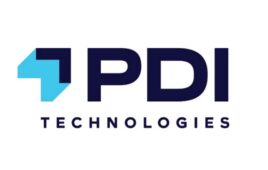By Ryan Mossman, Contributing Editor
Fines for leaking storage tanks are on the rise, data retention for storage tank compliance is getting longer, reporting frequencies are increasing and criteria for meeting compliance are growing. Whether you are the owner of a convenience store just looking at expanding your business into fuel or the Health/Safety/Environmental director for a large national chain, underground storage tank release detection and its compliant burden of proof deserve serious attention.
For large convenience store chains like 7-Eleven Inc., the biggest challenges are the increasing stringency of regulations and higher level of enforcement related to inventory control.
“Every month we are learning about new regulations and having to adjust our business processes by market,” says Peggie Betz, 7-Eleven’s senior environmental compliance analyst. “Nothing is getting easier from a storage-tank compliance management perspective.”
WHAT’S AT STAKE?
With the implementation of the Energy Policy Act of 2005, enforcement is increasing (even as the debate between federal and state authorities continues regarding its funding). Two recent examples show prosecution can be extremely costly for companies regardless of size. Just last month, a company with only 17 stores found out it is facing a $5,000 per-violation, per-day charge. Another more punitive example occurred in November when a 23store chain’s penalty topped $3 million.
Other costs include lost revenue from shutting down leaking tanks and from public distrust. Public perception is critical at a time when “hot gas” and similar contentious issues are being batted about by politicians and the media. You cannot afford to be portrayed as environmentally unfriendly. The old adage “any attention is good attention” does not apply here—loss of confidence in your operation will result in lost revenue.
HOW TO COMPLY? PROACTIVELY ADDRES ISSUES
A crucial aspect to any environmental compliance plan is to be proactive not reactive. Putting the right processes in place with the appropriate software can help you proactively respond to troubled tanks, sensors, lines and alarms before you fall out of compliance. This approach will greatly diminish, if not eliminate, fines altogether.
GAUGE YOUR OPTIONS…
Another crucial part of the plan is choosing the right compliance method for your company. For some retailers compliance derived from automatic tank gauge (ATG) data feeds make sense. Certain ATG manufacturers’ gauges are certified to test for leak detection, indicating compliance with a pass/fail rating. When used in conjunction with the right software package, ATG data can be used for both environmental compliance and fuel replenishment planning. This win-win solution generates a better return out of the capital expense required to equip tanks with this hardware. In large-scale operations in particular, the right software allows you to centralize data management and scale the effectiveness of your personnel in managing compliance.
…OR SURVEY YOUR SITE
Other retailers may find that automatic tank gauges are too expensive for every site and therefore rely on statistical inventory (SIR) reporting. SIR reporting is a method by which calculations are used to determine if a storage tank is leaking, and provides the added benefit of highlighting other inventory issues such as theft or potential meter drift. The downside to SIR reporting is that it is a process that relies on data quality from many sources across your company that can be hard to control and manage. Additionally, most vendors only provide information and analysis at the end of the month, by then you may already be leaking. When choosing your SIR provider, evaluate them on third-party certification, reporting frequency flexibility, timeliness of feedback and educated analysis for informational insight.
ENVIRONMENTALLY RESPONSIBLITY WITH PROFITABILITY
At the end of the day—whether using ATG-based compliance reporting, SIR reporting, or a combination of the two—it is important to recognize that one size does not fit all and that the right combination of software, hardware and services needs to fit your retail sites and operating philosophy. Leaders of companies from Wal-Mart to GE realize that being green and making green are not mutually exclusive. UST compliance, when implemented properly, is just such an opportunity for our industry to reduce or eliminate fines while generating the human resource savings, administrative cost reductions and reduced fuel management costs that improve your bottom line as well as your peace of mind.
Ryan MossMan is the vice president of marketing and solution management for FuelQuest. In that role, he has worked with industry-leading companies and solutions relating to storage tank compliance. He can be reached at [email protected]




